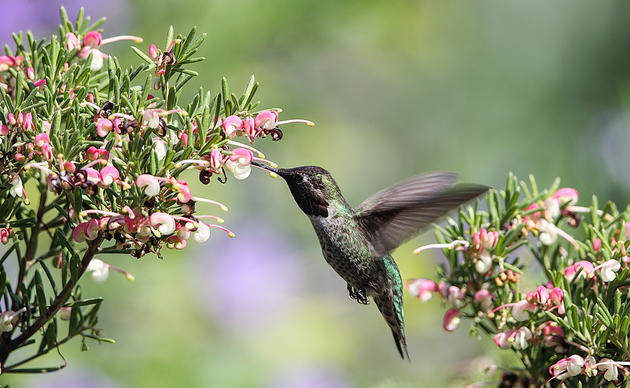While the water reform package passed by the State Legislature early this morning represents a dramatic step forward on a critical issue for all Californians, it is also a big win for the state’s migratory birds. Thanks to the efforts of Audubon California and other conservation organizations, key provisions require that Delta improvements for aquatic species such as fish will not result in a net loss of bird habitat. The package also funds water for state and federal wildlife refuges, as well as bird conservation on public and private lands.
“Migratory birds are a vital part of California’s natural legacy, and this water package recognizes that reality by protecting and restoring critical habitat, and providing water for refuges,” said Graham Chisholm, executive director of Audubon California. “While it is easy to say that lawmakers could have done more, we must recognize that this is the biggest step forward for migratory birds that we’ve seen in decades, and represents tremendous progress toward resolving the state’s ongoing water crisis.”
The Delta is critically important for migratory birds, supporting more than 200 different species. The area is a major stop on the Pacific Flyway – a sort of migratory freeway for birds – and millions of these birds land in the area to refuel for their journeys, breed, or spend the winter.
With less than 10 percent of the Delta’s original wetland and cottonwood willow habitats remaining, it remains a vital home to many declining species of birds. At least 22 bird species from the Delta listed as endangered, threatened, or of special concern – along with many others whose populations are dramatically reduced. Much of this loss can be pinned on the same problems with the Delta system that have led to water shortages and other environmental impacts.
The new water package benefits migratory birds in the following ways:
- Mandates no net loss of migratory bird habitat as a result of restoration or delta improvements, and where practicable, calls for habitat enhancement.
- Imposes a much higher standard for environmental protection on current efforts to improve water delivery and restore fisheries.
The water package passed by the Legislature, and requiring approval from the voters, contains the following supports for migratory birds:
- $2.25 billion for Delta habitat restoration
- $215 million for watershed restoration that supports threatened and endangered species
- $100 million to provide water to Central Valley wildlife refuges
- Funding for important conservation of the Klamath region and Salton Sea, as well as conservation on private lands that is increasingly important for migratory birds.
While legal restrictions arising from damage to California’s fisheries provided much of the impetus for the conservation elements in the water deal, Audubon California and its partners were able to make a compelling argument that migratory birds needed to part of the discussion.
“Restoring the health of the Delta's fisheries is important, and Audubon wanted to ensure that by taking action to address one problem, we weren't making another one worse – that helping fish would have unintended consequences for birds,” said Chisholm. “We need to ensure that we emerge from this overhaul process with as much migratory bird habitat that we had when we began, if not more.”
Among the birds whose populations have dramatically reduced in recent years are the American White Pelican, Western Snowy Plover, Tule White-fronted Goose, Northern Harrier, Western Burrowing Owl, California Black Rail, Greater Sandhill Crane and the Tricolored Blackbird.
Audubon California has identified seven globally Important Bird Areas in the Delta region. These places provide essential habitat for breeding, wintering, and migrating birds. The increasing demand for water from the Delta system has the potential of seriously harming these critical bird habitat areas.
By Garrison Frost
Monthly Giving
Our monthly giving program offers the peace of mind that you’re doing your part every day.




